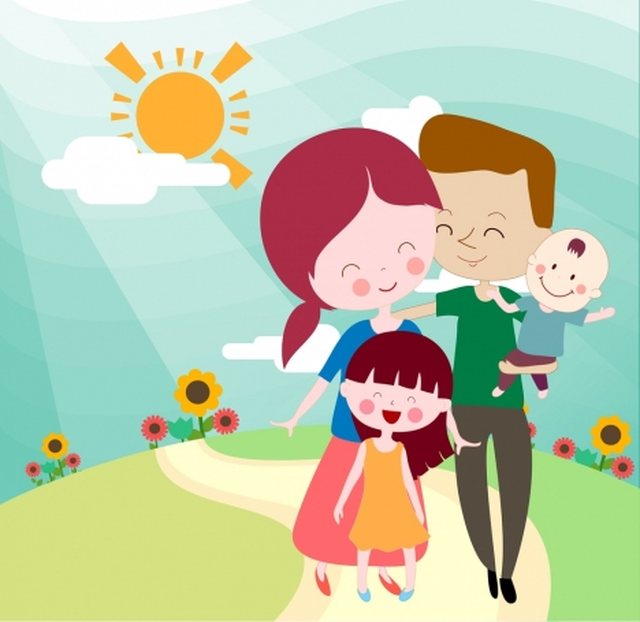
"Your children are not your children," say the beautiful verses of Khalil Gibran, included in his work The Prophet. Gibran suggests that even if we tend to think they belong to us, in reality, even though they are close to us, children are not our property. Because children have every right to be alone, regardless of us parents and the expectations we have for them. They are independent beings, whom we can teach to fly without claiming to be like us or to become as we would like them to be. Below, valuable lessons learned from Khalil Gibranâ??s verses on children.
Your children are not your children
"Your children are not your children. They are the sons and daughters of life itself, â?says Gibran, explaining that we should not make the mistake of thinking of our children as something that belongs to us. Because they belong to life, and we parents need to consider ourselves simply allies, whose job it is to help them get on the flight.
You bring children into the world, children, but you donâ??t create them
"You bring children into the world, but you don't create them," Gibran suggests in these verses, repeating the same concept, that is, that despite the fact that we bring our children into the world, and that they are the blood of our blood, we cannot create them. They already exist.
They are near us, but they are not ours
"They're close to you, but they're not your thing." Gibran returns, and not surprisingly, to this important point, to reiterate that children do not belong to us. He wants to emphasize that we cannot treat and consider them as property, even if they share the same roof and belong to our family.

Children have their own ideas
"You can give them all your love, but not your ideas. "Because they have their own ideas." In these verses Gibran explains to us that we parents can pass on our love to children, but we cannot do the same with ideas. Because it is not said to share our ideas, they may have their own and have the right to cultivate them.
The soul of our children belongs only to them
"You can shelter their bodies, but not their souls," says Gibran, suggesting that even if, as parents of our children, we shelter their bodies in our homes, we cannot do the same with the soul. their, as he does not belong to us and we are only expected to respect him.

The spirit of our children lives in the home of the future
"Because their souls live in the house of the future, where you have no right to enter, not even in a dream." In these verses Gibran explains to us that the soul of our children is untouchable, elusive. He lives not in our homes, just like their bodies, but in the house of the future, in which we parents have no access. Gibran encourages us to respect the essence of our children, not to think that we know them and take them for granted, simply because we are their parents. / bota.al





